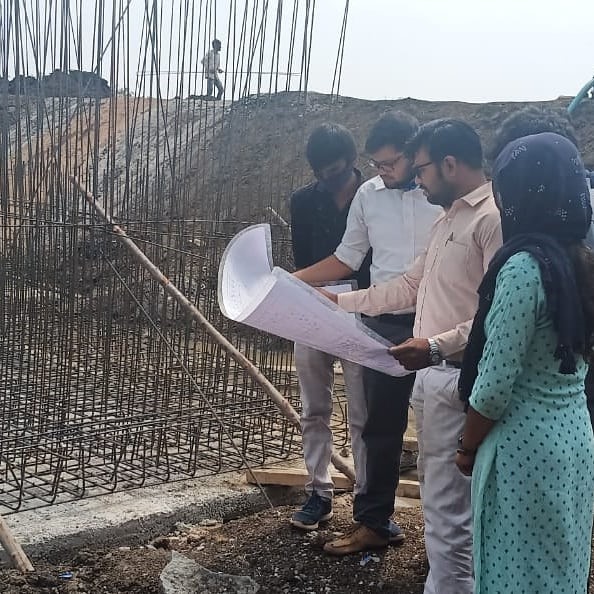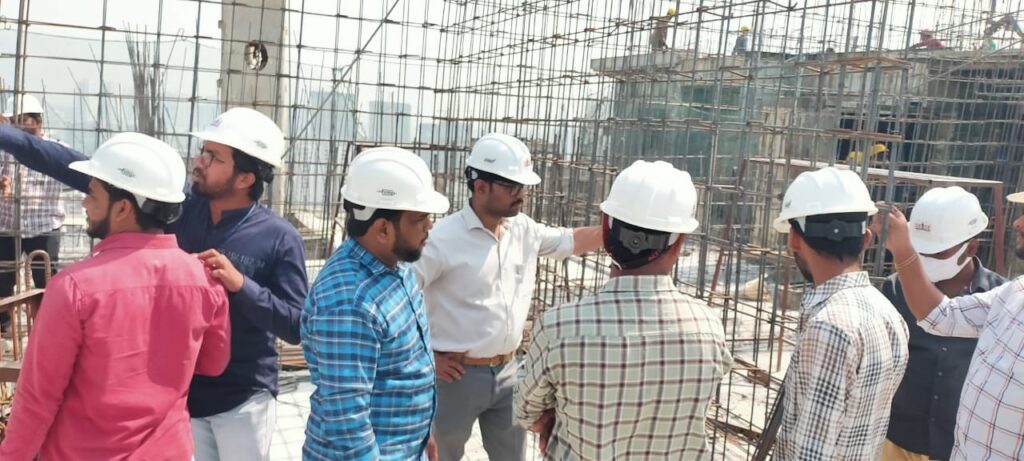Site Engineering
Site engineering involves the overall planning, implementation and day-to-day management of construction projects The role of a qualified site engineer is essential for the safety and success of construction projects.
A site engineer is an engineering professional who works with a site management team to organise and supervise construction projects. They also provide technical advice to construction crews. Site engineers usually work in collaboration with other engineers, architects, interior designers, subcontractors, labourers, craftspeople and other operatives.
A site engineer oversees and manages the daily engineering work at different operational stages at a construction site.
Some of the site engineer’s responsibilities may include:
- Planning And Preparing Technical Drawings And Construction Layouts
- Reviewing Work Schedules And Delegating Work Tasks
- Organising Construction Materials And Negotiating Vendor Contracts
- Conducting Preliminary Inspections At Potential Construction Sites
- Gathering Data And Writing Site Reports And Other Necessary Work Documentation
- Determining Project Feasibility And Giving Approval
Developing Construction Project Budget Estimates - Providing Technical Advice And Diagnosing And Resolving Technical Difficulties
- Ensuring Compliance With Health, Safety And Legal Regulations
- Collaborating With Clients, Construction Crews, Subcontractors And Other Professionals
- Conducting Quality Assurance And Providing Feedback

What are the top skills of a site engineer?
Site engineers may require the following skills to perform their tasks effectively:
- Technical skills: It is important for site engineers to have the necessary technical knowledge to work with designs, drawings and models and identify and find solutions for engineering problems.
- Project management skills: They require project management skills to evaluate, allocate and oversee work tasks in a project and ensure compliance with relevant standards, regulations and laws.
- Communication skills: Effective verbal and written communication skills are essential for site engineers to interact with clients, vendors, suppliers, other engineers, site supervisors and workers.
- Organisation skills: Site engineers monitor and evaluate work progress, ensure compliance with project plans and design documents, organise project information and allocate construction resources.

- Budgeting skills: They have to estimate the costs of materials and labour and use resources carefully.
- Leadership skills: Since the site engineer is in charge of the project and responsible for its outcome, they ought to be decisive, confident and approachable, and able to lead and motivate those working under them.
- Collaboration skills: Construction work involves teamwork, and site engineers collaborate with crew members and organise work duties to improve work efficiency.
- Problem-solving skills: Various unforeseen problems can arise at construction sites, and site engineers solve these quickly and effectively.
- Attention to detail: To ensure that the construction work proceeds without problems, site engineers pay attention to detail and take stock of even the most minute things.
- Time-management skills: Most construction projects have timelines for completion, and site engineers ensure that the project work progresses according to schedule.

